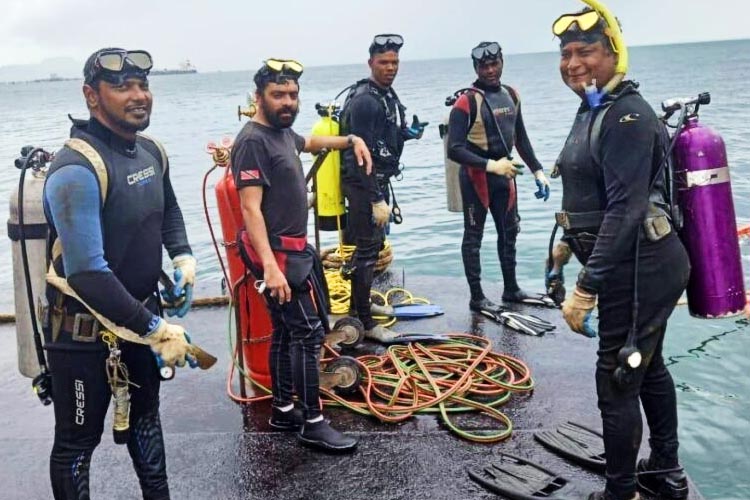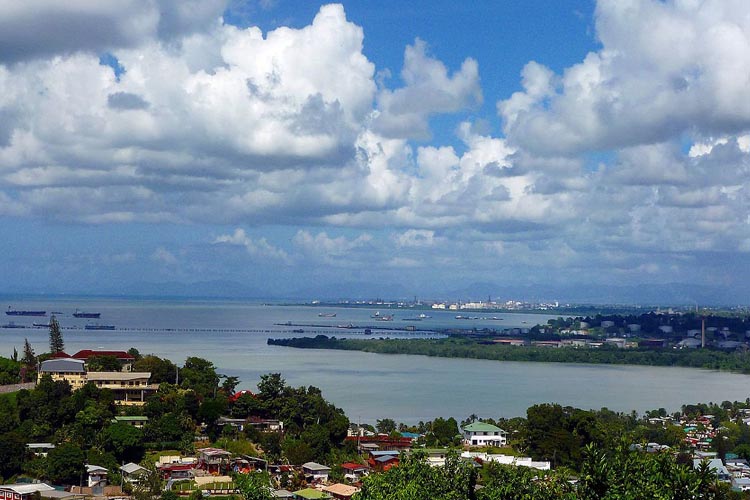
An inquiry into the tragic deaths of four divers sucked into an oil pipeline off the coast of Trinidad, Trinidad and Tobago, has concluded that the pipeline’s owner, the Paria Fuel Trading Company Limited, should be tried for gross negligence and corporate manslaughter.
The four divers, Kazim Ali Jr, Yusuf Henry, Fyzal Kurban and Rishi Nagassar, were killed on 25 February 2022, when they were sucked into the pipeline in Pointe-a-Pierre harbour while carrying out maintenance work. A fifth diver, Christopher Boodram, survived the ordeal after being pulled from the pipe by Mr Kurban’s son, Michael, after spending three hours trapped inside.
According to the 380-page report produced by the Commission of Enquiry (CoE) at a cost of $15.5 million, Paria had failed in its duty of care to the divers. Not only did the report blame the company’s poor operating procedures for the disaster, but its point-blank refusal to allow a rescue mission for the divers, who remained trapped – injured and alive – inside air pockets within the pipeline.
The report also said that the company for which the divers worked, Land and Marine Construction Services (LMCS) – which was contracted by Paria to perform the maintenance procedure – was equally culpable for the outcome of the disaster, although it would not be prosecuted under criminal law as it had been ‘effectively prevented from pursuing [the] rescue by Paria’.
Related stories
- Time is running out for decaying Yemeni tanker
- How the Rosebank Oil field will affect the North Sea
- Judge overturns Malta dive buddy death ruling
- Conception liveaboard fire victims were trying to escape when they died – report

The CoE report said that the tragedy was caused by the ‘methodology adopted by both Paria and LMCS in removing the content from the pipeline,’ which created a ‘Latent Differential Pressure’ – also known as a ‘Delta P’ – hazard: a vacuum within the pipeline caused anything within the immediate area to be sucked inside under great pressure as soon as it was opened by the divers.
With four men remaining trapped inside, rescue divers were prepared to return to the scene once Boodram had been brought to the surface, but Paria’s terminal operations manager, Collin Piper, who was managing the company’s Incident Command System (ICS), refused to allow them to attempt a rescue.
Arguing during the trial that he had made the decision in order to prevent any more lives being lost, the CoE report concluded that he had not acted reasonably, had wasted time waiting for a camera drone to return pictures from inside the pipeline, and had failed to calculate how much air each of the men would need to survive.
‘All realistic options should have been considered,’ says the report. ‘Even if the camera revealed that which they sought, no plan to carry out a rescue had been put in place. No attempt was made to engage with the country’s best experts in commercial diving which had arrived on site.
‘Piper closed his mind to any alternatives without even hearing them. We regard this as a serious breach of Paria’s duties under the ICS. This is not to suggest that a rescue must inevitably be sanctioned but to recklessly close one’s mind to alternatives carries the hallmark of a serious breach of duty.’
The surviving diver, Christopher Boodram – who has not been able to return to work following the deaths of his colleagues – said that he welcomed the report’s findings, but did not have confidence that criminal charges would ever be brought against Paria.
‘I have researched this law and I don’t believe this will hold up in a court in Trinidad and Tobago, corporate manslaughter,’ he told the Trinidad Express. ‘But I am pleased that the Commission of Enquiry did their job well and honest. I hope that the recommendations are considered and applied by the marine and subsea industries.’


